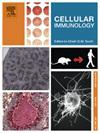新型有效的CD38和CD19串联靶向CAR-T细胞抑制血液学肿瘤免疫逃逸
IF 2.9
4区 医学
Q2 CELL BIOLOGY
引用次数: 0
摘要
用嵌合抗原受体(CAR)-T 细胞靶向 CD19 在临床上是有效的,但肿瘤免疫逃逸和肿瘤复发仍时有发生。设计能同时靶向多种抗原的 CAR-T 细胞是抑制肿瘤免疫逃逸的一种可行方法,而且已经有了很有前景的研究结果。在这项研究中,我们设计了新型 CD19 和 CD38 双靶点 CAR-T 细胞,它们对表达 CD19 或 CD38 的靶细胞具有很强的细胞毒性。在体外研究中,与单靶点CAR-T细胞或CD19/CD38串联(Tan)CAR-T细胞相比,CD38/CD19 Tan CAR-T细胞具有相似的CAR表达、卓越的细胞毒性和抗原刺激T细胞增殖。在体内研究中,CD38/CD19 Tan CAR-T 细胞表现出与单靶点 CAR-T 细胞相同的疗效和安全性。这些 CD19/CD38 Tan CAR-T 细胞与现有的临床级 T 细胞制造程序完全兼容,可以使用当前的临床方案实施。总之,我们的研究结果为抗 CD19 CAR-T 细胞疗法中肿瘤免疫逃逸的挑战提供了有效的解决方案。本文章由计算机程序翻译,如有差异,请以英文原文为准。

Novel and effective tandem CD38 and CD19 targeting CAR-T cells inhibit hematological tumor immune escape
Targeting CD19 with chimeric antigen receptor (CAR)-T cells is clinically effective, but tumor immune escape and tumor recurrence still occur. Designing CAR-T cells that target multiple antigens simultaneously is a viable approach for inhibiting tumor immune escape, and promising findings have been reported. In this study, we designed new CD19 and CD38 dual-target CAR-T cells that are strongly cytotoxic to target cells expressing CD19 or CD38. In vitro studies, compared with single-target CAR-T cells or CD19/CD38 tandem (Tan) CAR-T cells, CD38/CD19 Tan CAR-T cells presented similar CAR expression, superior cytotoxicity and antigen-stimulated T-cell proliferation. In vivo studies, CD38/CD19 Tan CAR-T cells demonstrated the same efficacy and safety as single-target CAR-T. These CD19/CD38 Tan CAR-T cells are fully compatible with existing clinical-grade T-cell manufacturing procedures and can be implemented using current clinical protocols. In summary, our findings provide an effective solution to the challenge of tumor immune escape in anti-CD19 CAR-T-cell therapy.
求助全文
通过发布文献求助,成功后即可免费获取论文全文。
去求助
来源期刊

Cellular immunology
生物-免疫学
CiteScore
8.20
自引率
2.30%
发文量
102
审稿时长
30 days
期刊介绍:
Cellular Immunology publishes original investigations concerned with the immunological activities of cells in experimental or clinical situations. The scope of the journal encompasses the broad area of in vitro and in vivo studies of cellular immune responses. Purely clinical descriptive studies are not considered.
Research Areas include:
• Antigen receptor sites
• Autoimmunity
• Delayed-type hypersensitivity or cellular immunity
• Immunologic deficiency states and their reconstitution
• Immunologic surveillance and tumor immunity
• Immunomodulation
• Immunotherapy
• Lymphokines and cytokines
• Nonantibody immunity
• Parasite immunology
• Resistance to intracellular microbial and viral infection
• Thymus and lymphocyte immunobiology
• Transplantation immunology
• Tumor immunity.
 求助内容:
求助内容: 应助结果提醒方式:
应助结果提醒方式:


